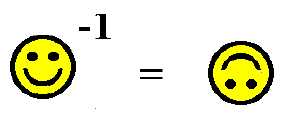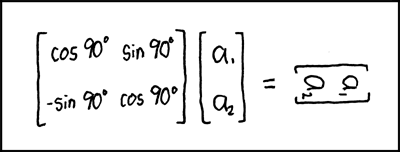

| Path: Eric’s Site / Math / Math Jokes | (Site Map) |
| External links: |
 |
| Happy Face Math by Charlie Smith. |
 |
| Matrix Rotation from xkcd. |
| xkcd is a webcomic by Randall Monroe. |
(a+b)^n
(a + b) ^ n
(a + b) ^ n
(a + b) ^ n
| Path: Eric’s Site / Math / Math Jokes | (Site Map) |
Compilation © copyright 2000 by Eric Postpischil.